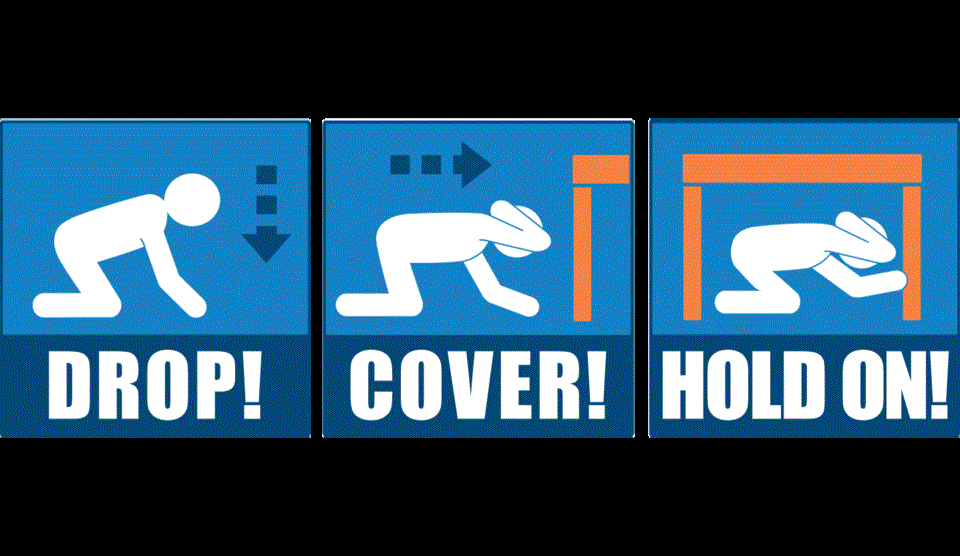At 10:15 a.m. on October 15, you’ll find Bowen Island Municipality’s emergency program coordinator, Jennifer McGowan, under her desk.
While the pandemic rages on, thousands across B.C. and the world will prepare for a different kind of disaster during ShakeOut 2020.
The annual earthquake drill on the third Thursday of every October bids people to “drop, cover and hold on” as if they were in the middle of a major earthquake. Municipal hall is participating, even broadcasting a recording of earthquake sounds over the PA system to add to the realism.
“It’s really just about raising awareness, making sure people know what to do during an earthquake but also are prepared for the aftermath of an earthquake,” says McGowan. “So it’s not just about being under the table but what comes next.”
Individuals, families, schools, workplaces and other organizations can and are encouraged to register for the drill that saw more than a million participants in 2019: shakeoutbc.ca/.
With Emergency Preparedness Week in May and ShakeOut in October, a number of islanders use the events to prompt twice annual personal emergency preparedness work says McGowan. Examples of preparedness work include checking the smoke detector batteries, checking for expired food in the emergency kit, fastening the bookcase to the wall and registering for the emergency notification system.
“Maybe you want to take a COVID focus and say ‘Oh, I’m going to make sure that I have masks and gloves and hand sanitizer in my emergency kit, just in case there’s an earthquake during COVID,’” McGowan adds.
As someone who prepares for emergencies for a living, McGowan also has robust personal emergency planning. She has a generator with enough fuel to operate home essentials (the well pump for example) for a couple of days. There are emergency kits with enough food for the household (including pets) for three weeks. (Three days of food is the emergency preparedness rule of thumb but McGowan says if one can afford to maintain a longer supply, that’s probably a good idea.) She also has a satellite phone. As McGowan’s spouse commutes, the two have a pretty detailed plan as to how they might communicate should cellphones be down for a few days. Such discussions are important for families to have she says.
McGowan also encourages islanders to join or get to know their local Neigbourhood Emergency Response Program volunteers.
“We know that there might not be any assistance coming to people for days post catastrophic earthquake,” says McGowan. “The better you’re able to look after yourself in your home and in your neighborhood the better you’re going to fare.”
To learn who your local NERP is or to join, email Edward Wachtman at edward@bimbc.ca or McGowan at JMcGowan@bimbc.ca.



